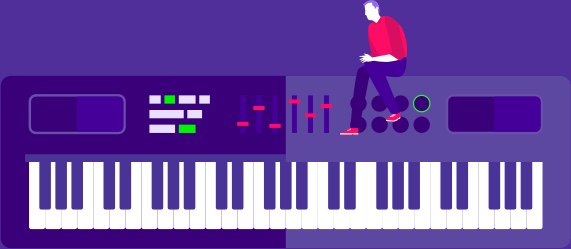Eugénie
Particular seller

Yamaha
P-80
The P-80 has 12 different sounds: four acoustic pianos (concert piano, more modest classical piano, jazz piano, rock piano), two electric pianos, and six acoustic instruments (harpsichord, string ensemble, 3 organs, and a bass). I'll pass quickly on these, the most interesting ones being in my opinion the piano sounds. On this subject, I was pleasantly surprised by the quality of the concert piano, whose charm is disturbing to say the least. Its realism is all the better since the musical notes are sampled in stereo, but especially at several velocity levels.The sound is also respected when using the sustain pedal: on a low-end or mid-range synthesizer, if you try to play a trill or play a long sequence of notes, the sound will take on a disproportionate, blurred, and moderately pleasant amplitude. The notes will not blend together like on a real piano, but will add up without "harmonizing". On the P-80, this is not the case: the P-80's piano instruments have audio processing added to them, the purpose of which is to reproduce the timbre of the strings and the resonance of the piano's sound box. Thus, pressing the sustain pedal will allow the notes to blend in the manner of a real acoustic piano. The result is rather realistic and very appreciable.You have several effects: four reverbs (room, hall 1, hall 2, stage) of honorable quality, as well as four other effects: chorus, symphonic, tremolo and delay. These last ones are especially adapted to sounds other than piano. A fader also allows you to make the sound more or less brilliant.The 64-note polyphony is perfectly suited for intensive use of the piano: there is no risk of running out of polyphony, even if you leave the sustain pedal pressed.
400,00 €
Customer review about the seller
Average for 0 total reviews

